

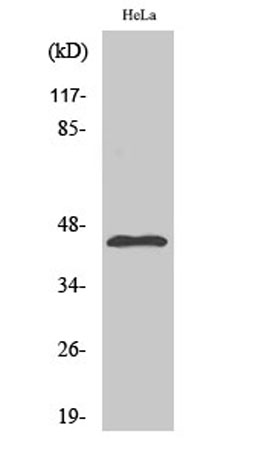
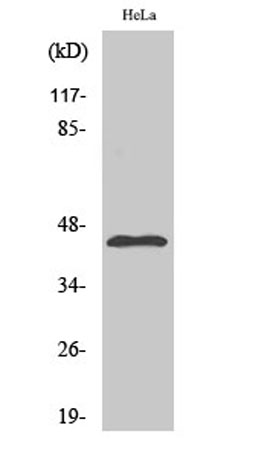
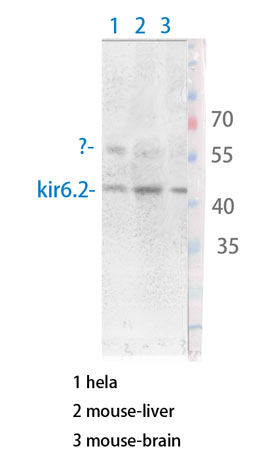
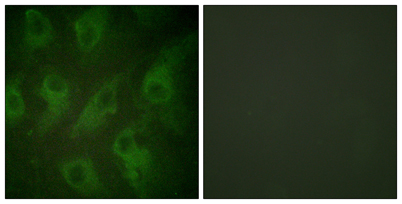
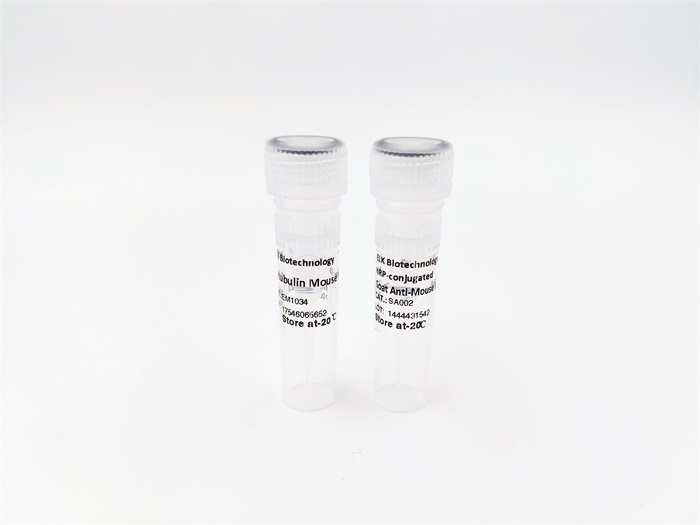



KIR6.2 rabbit pAb
 One-click to copy product information
One-click to copy product information$148.00/50µL $248.00/100µL
| 50 µL | $148.00 |
| 100 µL | $248.00 |
Overview
| Product name: | KIR6.2 rabbit pAb |
| Reactivity: | Human;Mouse;Rat |
| Alternative Names: | KCNJ11; ATP-sensitive inward rectifier potassium channel 11; IKATP; Inward rectifier K(+) channel Kir6.2; Potassium channel; inwardly rectifying subfamily J member 11 |
| Source: | Rabbit |
| Dilutions: | Western Blot: 1/500 - 1/2000. Immunohistochemistry: 1/100 - 1/300. Immunofluorescence: 1/200 - 1/1000. ELISA: 1/10000. Not yet tested in other applications. |
| Immunogen: | The antiserum was produced against synthesized peptide derived from human Kir6.2. AA range:190-239 |
| Storage: | -20°C/1 year |
| Clonality: | Polyclonal |
| Isotype: | IgG |
| Concentration: | 1 mg/ml |
| Observed Band: | 40kD |
| GeneID: | 3767 |
| Human Swiss-Prot No: | Q14654 |
| Cellular localization: | Membrane; Multi-pass membrane protein. |
| Background: | Potassium channels are present in most mammalian cells, where they participate in a wide range of physiologic responses. The protein encoded by this gene is an integral membrane protein and inward-rectifier type potassium channel. The encoded protein, which has a greater tendency to allow potassium to flow into a cell rather than out of a cell, is controlled by G-proteins and is found associated with the sulfonylurea receptor SUR. Mutations in this gene are a cause of familial persistent hyperinsulinemic hypoglycemia of infancy (PHHI), an autosomal recessive disorder characterized by unregulated insulin secretion. Defects in this gene may also contribute to autosomal dominant non-insulin-dependent diabetes mellitus type II (NIDDM), transient neonatal diabetes mellitus type 3 (TNDM3), and permanent neonatal diabetes mellitus (PNDM). Multiple alternatively spliced trans |
-
 Western Blot analysis of various cells using KIR6.2 Polyclonal Antibody diluted at 1:500
Western Blot analysis of various cells using KIR6.2 Polyclonal Antibody diluted at 1:500 -
 Western Blot analysis of NIH-3T3 cells using KIR6.2 Polyclonal Antibody diluted at 1:500
Western Blot analysis of NIH-3T3 cells using KIR6.2 Polyclonal Antibody diluted at 1:500 -
 Western Blot analysis of various cells using Antibody diluted at 1:1000. Secondary antibody(catalog#:RS0002) was diluted at 1:20000
Western Blot analysis of various cells using Antibody diluted at 1:1000. Secondary antibody(catalog#:RS0002) was diluted at 1:20000 -
 Immunofluorescence analysis of HeLa cells, using Kir6.2 Antibody. The picture on the right is blocked with the synthesized peptide.
Immunofluorescence analysis of HeLa cells, using Kir6.2 Antibody. The picture on the right is blocked with the synthesized peptide.

 Manual
Manual